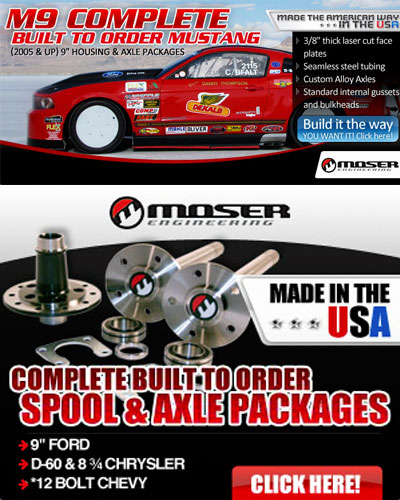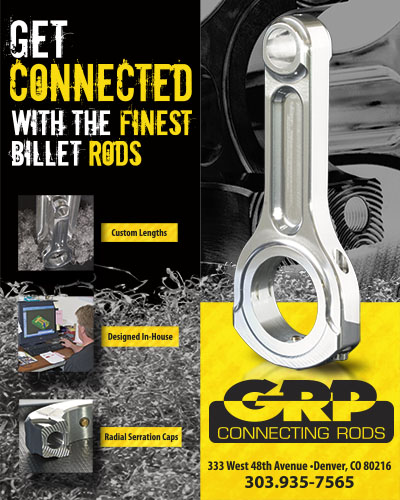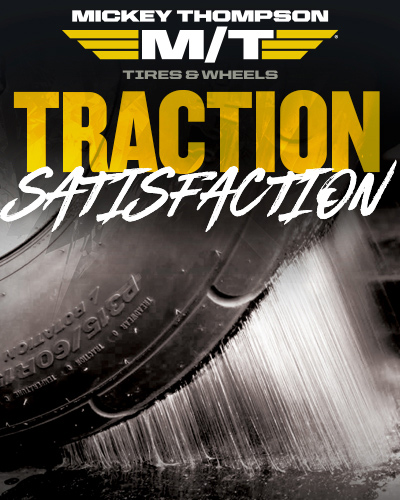SCOTTY CANNON GETS THE CALL FROM THE HALL; HEADED TO NC DRAG RACING HALL OF FAME
 The notion he's a Hall of Fame-worthy drag racer still leaves Pro Modified icon Scotty Cannon shaking his head in disbelief.
The notion he's a Hall of Fame-worthy drag racer still leaves Pro Modified icon Scotty Cannon shaking his head in disbelief.
Disbelief is what transpired from a career of a drag racer who dropped out of high school at 16 years old to go to work, support a child, and became a drag racer despite having limited mechanical skills when he started. In other words, on paper, Cannon didn't give any indication he'd become one of the most iconic doorslammer drag racers ever.
Cannon did secure 28 national event wins in the former IHRA's Pro Modified division between 1991 - 1998 and reached 45 final rounds. He secured an unprecedented six world championships, with four of that coming consecutively. When his doorslammer career ended, Cannon took up nitro Funny Car, where he drove a Funny Car sponsored by Oakley. He then drove Top Fuel in 2007, where he finished third in the IHRA Top Fuel standings on the strength of two wins in three final rounds.
These accomplishments have netted Cannon an induction into the North Carolina Drag Racing Hall of Fame. Cannon will be inducted on February 15, 2021, along with Shirley Muldowney, Arthur Bryant, Gene Cromer, Donnie Moore, Jr., Larry Waller, and Glenn Blackburn.
 Cannon remains surprised he's part of the group.
Cannon remains surprised he's part of the group.
"It never crossed my mind to be honest with you that I would ever make it in any Hall of Fame," Cannon said. "I was just this kid from Greer, South Carolina who wanted to drag race and did it. My family and friends weren't surprised. I don't know. It's a shock. I thought you had to be dead before you got in one, to be honest with you, years and years ago, but it's good to be young, because I want to enjoy the moment."
Cannon won his first IHRA professional race in 1991 at Bristol Dragway, then called Thunder Valley, when he stopped top-name racer Robbie Vandergriff in the finals of the prestigious Spring Nationals. However, Cannon had won plenty of races before then scoring the 1989 IHRA Gateway Nationals championship in Top Sportsman, after winning the Saturday Night Quick Eight, the precursor to the Pro Modified division.
Cannon said he was just caught up in the moment of racing and paid little attention to the accolades he was quickly amassing along the way.
"I don't try to forget yesterday, or last month, or ten years before and 20 years back," Cannon admitted. "I remember about 90% of it probably. I remember all the good times. I remember the bad times, and there are probably more of the bad times than there are the good times because a person seems to forget some of the good times and never will forget about the bad times. But I've been blessed by God, and I've been blessed by a lot of people.
"I've been taken care of, and it means just as much to me as winning any championship because I'm not active now. I'm not so sure that one day maybe I can't come back as an old man and do this. I've actually given that some thought. I'm not straddling the fence yet, but my health's a lot better, my back's somewhat like it was, but I drove with it like it was. My only fear is if I did come back and try to do this some more, that it could cripple me up or something. I'm leaning towards just probably staying out of the car right now.
Remember Scotty Cannon? Word has it the six-time Pro Modified champ may be returning to driving. Here's an encore presentation of a story detailing his rise from nothing to one of the most revered figures in doorslammer racing. #DragRacingNews https://t.co/88uXHdH0y0 pic.twitter.com/peojbjdp5q
— Competition Plus (@competitionplus) November 7, 2020
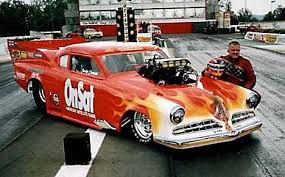 Cannon reached a crossroads in his career at the end of the 1998 season, when after securing a sixth championship was approached by Jim Jannard, founder of Oakley, about campaigning a fuel Funny Car in the NHRA Winston Drag Racing Series. He still doesn't regret stepping away from all of his Pro Modified momentum to pursue another dream. However, with hindsight being 20/20, he believes he might have been better off to stay put.
Cannon reached a crossroads in his career at the end of the 1998 season, when after securing a sixth championship was approached by Jim Jannard, founder of Oakley, about campaigning a fuel Funny Car in the NHRA Winston Drag Racing Series. He still doesn't regret stepping away from all of his Pro Modified momentum to pursue another dream. However, with hindsight being 20/20, he believes he might have been better off to stay put.
"My goal always was to drive a Funny Car," Cannon said. "I don't know why I always wanted to. I don't regret it. I'm glad that I did it. If I didn't do it, I'd always wanted to do it. Looking back on it it's like, if I knew what I know now, I wouldn't have left. I would have stayed where I was and continued, hopefully my career the way it was going because I was back on top of things. I had had a stumbling up in 1997, but I came back in 98 with a pretty hard bang. I keep in touch with a lot of the guys out there now and up with the technology and watching what's going on, and outside of it just costing a lot more, nothing's changed." Cannon revealed his operation was funded on a shoestring budget, deriving most of his funding from match races and t-shirt sales. But at the end of 1998, despite being starstruck at the notion of racing on the grand stage of drag racing, Cannon could see the writing on the wall that times were changing in Pro Modified.
"I would say our work ethic played a major role in that, too," Cannon explained. "The technology has come so far, and this is not negative, but you can buy a lot more, but you still have to have that other little 10% of the puzzle. Back then, we had to build a lot of the parts that are available today.
"Making those parts to win like we did, when I say we, it was me and my team and all my sponsors. You got to have 110%, not 100, you got to have 110%."
 There's a part of Cannon which wishes he'd kept his Pro Modified program alive while he went to Funny Car, but understood when one goes fuel racing, you're either all in or not.
There's a part of Cannon which wishes he'd kept his Pro Modified program alive while he went to Funny Car, but understood when one goes fuel racing, you're either all in or not.
"That's was such an intense deal and politics involved that I wasn't aware of ... a lot," Cannon said. "I was just a small-town boy from South Carolina, thrust into the spotlights of the biggest stage in drag racing. I wasn't aware of what came along with it. And I think I didn't handle some of that as I should have, which I hadn't been educated enough or had anybody in my ear to tell me what to say or do, but I've never been a yes man, I'm not going to be."
After Cannon left Funny Car at the end of 2002, he returned to Pro Modified and had limited success in his return, eventually handing over the reins of the family Pro Modified Pontiac to son Scott Jr., who went on to win the 2007 IHRA championship.
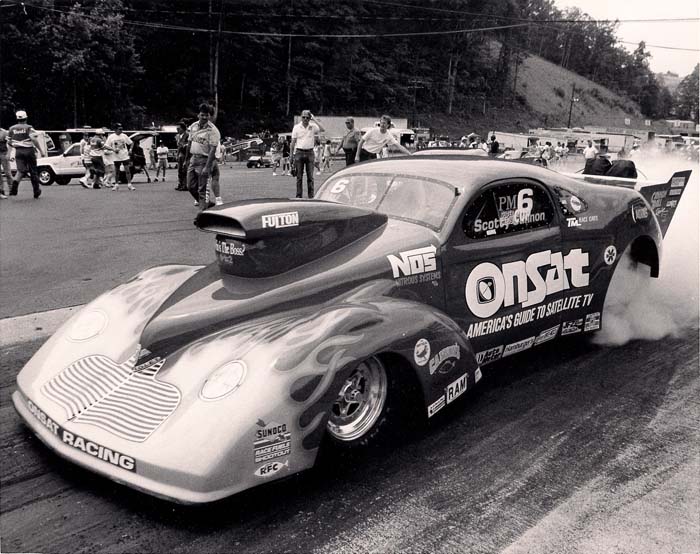 All in all, Cannon understands his storied career was a once in a lifetime opportunity. With this said, if he could have gone back in time knowing what he knows now to speak to the 16-year old version of himself, he knows exactly what he would say.
All in all, Cannon understands his storied career was a once in a lifetime opportunity. With this said, if he could have gone back in time knowing what he knows now to speak to the 16-year old version of himself, he knows exactly what he would say.
"Keep going on the path you are now," Cannon said. "Do what's right unto others, and then I think good will come back to you.
"I wouldn't change anything much. I would probably change a few little things, which didn't really mean much. As far as changing the whole big picture, the good Lord was good to me.
"If somebody would've come to me from the future and told me one day you will be one of the greatest drag racers ever known in history, I would have told them they're crazy. No one in my family raced, so I didn't have a shed to prop myself up on if I wasn't doing good; there was nobody to tell me I was doing right. So, believe it or not, when I first started, it was pretty rough on my family just to see me racing because it was a no-no to them, until I got to where I was doing pretty good, and then naturally, everything changed.
"But then again, if I'd have been them, which was my dad, most of the time, I would have said the same thing. What do you doing? You ain't going amount to nothing, that's what I was told. I wish someone had told me that. Now my grandfather, he always told me to do what I want to do. He said, 'Do what your heart wants you to do and what you feel like you ought to do. I don't care what it is."
"And he didn't mean that in pertaining to drag racing. He meant period. He was a no-nonsense man."
In the end, Scotty Cannon followed his heart right into the North Carolina Drag Racing Hall of Fame.
Get all of your https://t.co/Reh86n8GFm apparel by visiting https://t.co/QR7z0rKzRO. The finest in quality as produced by @gosvaink and Greg Ozubko #CompetitionPlusApparel pic.twitter.com/pUsl6qgses
— Competition Plus (@competitionplus) October 27, 2020
























